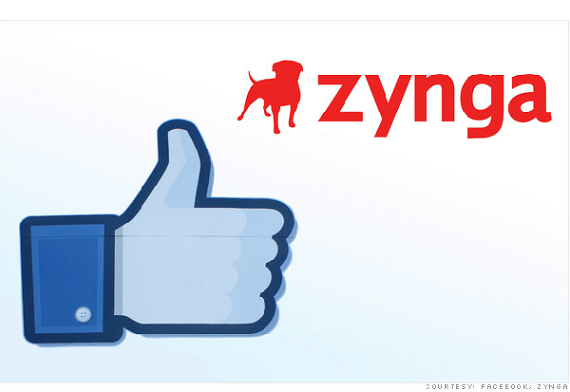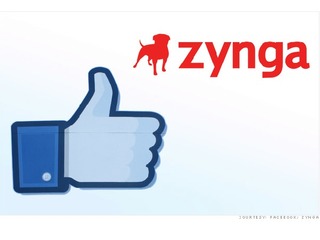
Updated to reflect comment from Facebook
You know those ads that you see on Facebook? They show up on the right side of your account, and you’re just a little scared to click on them, for fear of getting spammed? Well, get ready to start seeing those same ads in a lot more places.
Facebook is now running advertisements and sponsored stories on Zynga’s website..
The ads will only be “sponsored stories about activity that has been shared with you,” as the website does not “sell information that tells advertisers who you are,” according to Facebook’s help center.
Like the ads that now appear on Facebook.com, users will have the ability to remove the advertisements from Zynga’s page as well.
“People may now see ads and sponsored stories from Facebook on Zynga.com,” a Facebook spokesperson told VatorNews.
“We don’t share any information about people or advertisers with Zynga and advertisers do not have any new targeting criteria.”
Shares of Facebook rose for the third day in a row on Friday, ending up nearly 4% at 33.05. The stock dropped to a low of $25.87 on June 5 after since going public in May at $38 IPO price, but has since rebounded in the last few weeks. After being down 32% at one point, it is now down around 13%.
The shares have come under pressure partly on concerns advertising revenue growth will not be so robust in the future.
Facebook advertising
Advertising has been a source of trouble for Facebook, and the move to start advertising on Zynga is almost certainly a first step toward an overall expansion of its advertising network.
While advertising accounted for $872 million of its $1.058 billion revenue in the first quarter of 2012, a study by Greenlight in March found that only 3% of those surveyed said they regularly clicked on Facebook’s advertisements, while 44% said they never clicked.
Ads on Facebook have been so ineffective that General Motors pulled $10 million in advertising off of the website in May, right before the company went public.
The state of Facebook advertising on mobile is even worse. In May, in a pre-IPO filing, Facebook said that it does “not currently directly generate any meaningful revenue from the use of Facebook mobile products, and our ability to do so successfully is unproven.”
Zynga and Facebook
Zynga is the logical good place for Facebook to begin its advertising expansion, given how closely tied the two companies are.
In the first quarter of this year, 15% of Facebook’s total revenue was brought in from Zynga. Of that revenue, around 11% came from the 30% in transaction revenue Facebook takes from Zynga for virtual goods, in addition to direct advertising bought by Zynga. The other 4% came from advertising that was done on Zynga games.
The 15% number is down from 19% the previous quarter, where 12% of Facebook’s revenue came directly from Zynga and 7% came from the revenue generated by ads.
Despite Zynga’s lower percentage, Facebook revenue from payments and other fees from its game developers was $186 million in the first quarter, nearly double the $94 million it made in the first quarter of 2011.
There had been some talk of trouble in the relationship between Facebook and Zynga given that its percentage had dropped, but the new agreement between the two companies would seem to put those rumors to bed.
The financials of the deal between Facebook and Zynga have not been released, so it is unknown how they will split any revenue that comes from the advertisements.
Facebook has issued the following statement: “We have had a close relationship with Zynga for a number of years and we think we can deliver value to Zynga and to the people playing their games by showing the same ads that they see on Facebook. We will not be showing ads on other sites at this time.”
Zynga could not be reached for comment
(Image source: buzz.money.cnn.com)





















